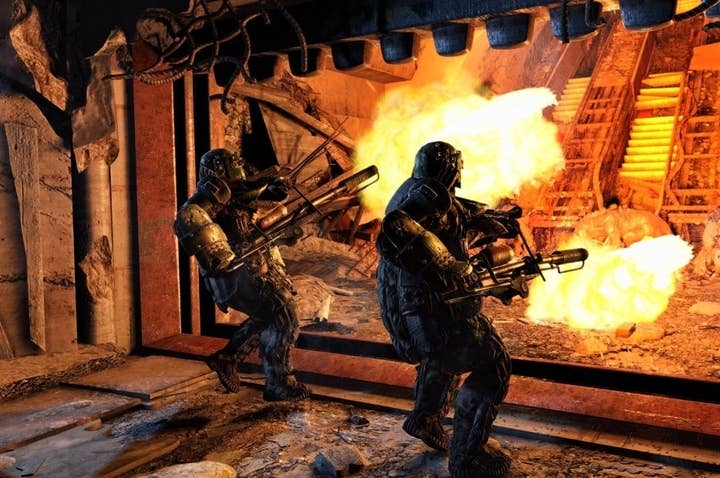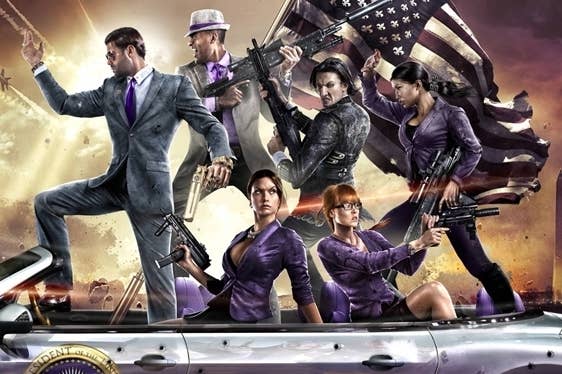Koch Media: When the Saints come marching in
Dr. Klemens Kundratitz on the changes its THQ acquisitions are bringing to the company
This time last year the name Koch Media called to mind just one thing to most gamers, and that thing was zombies in bikinis, thanks to the sometimes controversial Dead Island. Now the company is about to relaunch one of the biggest AAA franchises after owning it for just a matter or months, and has announced that it's taking its bikini zombies free-to-play with new MOBA Dead Island: Epidemic.
"We are certainly on a growth path in every way, but it is an organic growth and we are going one step at a time," Dr Klemens Kundratitz co-founder of Koch and its publishing arm Deep Silver, tells GamesIndustry International.
"We are certainly the number one privately owned AAA games publisher today"
"It's interesting times for companies like us and there are many opportunities on the market but we have to make the right choices and grow in a controlled manner."
Part of that growth is thanks to the fact that Koch had the foresight to snap up two of THQ's strongest properties; Metro: Last Light, which went on to outsell the original game and score a Metacritic of 80, and Saints Row 4, which is due for release next week and is already winning over critics.
"The THQ project has obviously been a milestone in our development as a games publisher on a global scale. We have grown up in many ways in the acquisitions we operate on an even more global scale. We are seen not only as a publisher of one product - the Dead Island publisher - we are now seen and recognised as part of the leading publishers. And certainly, being a privately owned company, we are certainly the number one privately owned AAA games publisher today."
He admits that thanks to time constraints, the actual influence that Koch Media had over the finished Metro title was minimal, the larger concerns was getting the game out without too much of a delay and building on what THQ had already done to ensure it had every chance to succeed in the market. He's pleased with the results, calling the launch and subsequent sales a "pleasant experience." Saints Row 4 offered a chance to exert more influence thanks to a later release, but, says Kundratitz, developer Volition had things well in hand.
"We wanted to unlock any potential that was to be unlocked, to take all the brakes off and really give them all the support that they needed to make the game the biggest and most ambitious in the series, which it now is. But we didn't interfere in the creative positioning of the game."

"It's important distinguish between giving freedom and giving somebody free reign. I think it's certainly a lean forward attitude that we have as a publisher in relation to our own products. And we believe that contributions on both sides will result in the best outcome, but certainly their part is on the creative side and our part is on the marketing side."
Part of that trust no doubt stems from Volition's values and principles, which Kundratitz says are close to Koch's own, and "if the fundamental values of companies are compatible it's really not difficult."
"As a private company we don't answer to the public shareholders, we don't answer to finance institutions, we're more free to do what we believe in, follow our entrepreneurial instincts and be more flexible and that affects all areas of the business including Volition."
He says the IP is also a good fit with Deep Silver's catalogue, and there is a kind of over the top, tongue in cheek madness that Saints Row shares with Dead Island. Lessons learned with the game were invaluable when it came to Metro and Saints Row. Given that Dead Island is now getting the free-to-play treatment, can we expect the same for these new IP too?
"Our approach to publishing is an IP-centric approach and naturally each IP has its home base platforms, but equally it has potential in other platforms and we'll also show that in the future, that IPs can grow and develop on other screens."
"Being too ambitious, as we have seen with THQ for example, is not always a good thing"
"We are excited about mobile platforms that will form an integral part of our future, and linked to new platforms are also new business models, which again we believe will also be here to stay. The free-to-play business model in our opinion is something that will be part of our business. It will not be the only part, but it will certainly be an important part of our entertainment business going forward."
He says the challenge isn't just in finding the right business models, a process he believes still has some way to go, but in finding the right sort of entertainment that matches the way people play on their mobile phones. A gamer doesn't want to play the way they do at home when they're on the 178 to Clapham.
And what of the consoles? Cautiously excited, is probably the best way to describe the co-founder's response.
"Deep Silver has never been renowned for jumping on new platforms on day one and I believe this is not what a company of our size and structure should be doing. But that doesn't mean that we are less excited and certainly we'll also be part of the publishers that invest in this."
So while it may not yet be an EA or an Activision, it's key to acknowledge that Koch Media is unlikely to ever be another THQ, and that's a good thing. The company is independent but now has a strong stable of titles, from Sacred and Risen to it's new adopted offspring. It is growing, but at a reasonable pace, and it's staking its place on new platforms, but not at the risk of over-extending itself.
"If a company only understands and is only active in one area I think it will have difficulties because both areas will, for the foreseeable future, play an important part in the overall business model," says Kundratitz as the interview comes to a close.
"Having said that I think it's important to follow your own special positioning and doing things which we are able to achieve and not trying to reach for goals that are not realistic. Being too ambitious, as we have seen with THQ for example, is not always a good thing. Knowing who you are, what you are able to do, and also knowing who you are not, are the things that guide our strategies."

